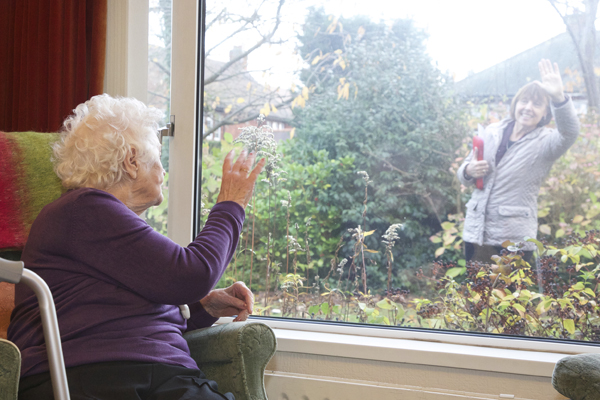 There are signs of forthcoming changes coming about in how people are cared for in Scotland, with more emphasis placed on Home Care.
There are signs of forthcoming changes coming about in how people are cared for in Scotland, with more emphasis placed on Home Care.
Government policy is to move the focus from hospital and care home settings to provide more effective care in the community. To provide care to people in their own homes. The merger this year of social and health care services leads to care being provided under local Integration Management Boards.
This has provided part of the stimulus for change. To provide more effective and affordable community services, there have been meetings with agencies across the world, who have a different view of domiciliary care to our own.
New Model: The Buurtzorg System
Government, health and nursing authorities have met with representatives of the Buurtzorg organisation. Having been set up in Holland in 2006, the service uses locality based teams of health professionals, usually district nurses, who are largely self-managing and who engage with their community. The organisation states it has the following essential functions:
- Assess the client’s needs; the assessment is holistic and includes medical needs, Long Term Condition needs and personal/social needs. On the basis of the resulting information, the individual care plan will be drafted
- Map networks of informal care and involve them in care
- To identify and include formal carers
- Care delivery
- Supporting the client in his/her social roles
- Promote self-care and independence
The Buurtzorg system has a flat organisation chart, and minimises costs by ensuring teams are self-managing in decision taking. So an expensive higher organisational structure is largely avoided.
The system seems to be effective, having spread from its home country to America, Japan, Sweden and elsewhere.
New Model: The Nuka System
The Nuka system is a holistic approach to care where there are no patients or service users, but ‘customer owners’. The service is provided across Alaska to its native people, spread across a very wide geography. People sign up for the service with a clinical team of four, and a telephone call for assistance is guaranteed to bring help the same day if made before 3 p.m.
The Public Audit Committee of the Scottish Government has recently discussed the Nuka approach, as part of its program to look for new models and approaches to home care.
The Need for Change
The government is giving their serious attention to how these, and other models, can help us to introduce more effective and affordable services.
There are many voices underlining the need for change. Andrew Robertson, the retired chair of the NHS in the Glasgow area, has called attention to the expanding need for home care, and has pointed out that natural carers are themselves ageing,with demands and needs of their own for planners to consider. Scottish Care is holding an event this month to look at New Models of Care.
The way to go seems to point to developing natural support resources, informal carers, voluntary agencies and local resources.
Regulation of care services is in the process of change: new care standards will be introduced next year, new inspection and reporting procedures are in place. In all the social change we encounter we need to remember that caring is a basic need and it that care itself should also be modernised.






